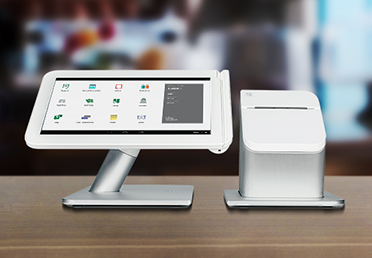Accepting credit cards online is a major business decision so it’s a good idea to research and plan before you decide which credit card processing provider to use. Start the process by deciding what you want and what your business needs.
Five Questions To Consider When Choosing An Online Credit Card Processor:
1) How Technologically Savvy Are You?
Be honest about your degree of comfort implementing new technology and your overall technological knowledge. If you’re not comfortable using technology then you should choose an easy-to-manage online payment solution to accept credit cards online. After all, you probably want to spend more time running your business than becoming a technological wizard.
2) Do You Already Have A Website?
If yes, do you like your website? Would you rather abandon it for a better site with more features? If you already have a site and don’t want to go through the effort of creating a new site to sell your products, payment buttons or plug-ins are good options for you.
3) What’s Your Budget?
When it comes to your costs, you need to look at both upfront costs and ongoing monthly (or yearly) costs. How much can you spend at the outset, and how much do you expect to be able to afford on a monthly or annual basis? Keep in mind the more technically advanced your e-commerce website, the more it will cost to build and maintain it. Likewise, the busier your site — the more products you have and the more sales you make — the more you can expect to pay for your processing.accept credit cards online
4) What Are You Selling?
Whether you’re offering retail products, services, digital goods or subscriptions, look for online credit card processing providers that have experience in your industry so you don’t have to waste time creating workarounds. Many solutions are generalized for a broad array of merchants, but with add-ons and integrations to make them more tailored. You can also find payment processors and software that offer ready-made specialized solutions and service plans.
5) How Comfortable Are You Handling Security Features?
If you want to sell online, you have to make sure your website is secure. That means ensuring your site is PCI compliant. If you accept credit cards online it means that your website handles sensitive information. That means that you bear the burden of protecting that sensitive information. Fortunately, many payment processors, such as First Data offer solutions to keep your customers’ information secure and reduce your PCI burden — in some cases, you don’t have to do anything at all.
Once you’ve answered these questions and decided on the features you need for your online payment processing, you can evaluate your online credit card processing options. One of your primary considerations should be finding a credit card payment processor that meets your needs. Depending on your business model, you might want to first look at what kind of e-commerce options work for you and then select a payment processor from the available options.
Types Of Credit Card Payment Processors Available
In choosing your payment processor you’ll also need to consider what kind of business model the processor uses.
Traditional merchant accounts, such as a credit card processing account with First Data, are very stable. Your account won’t be terminated unless there Is a clear violation of either your contract or card network rules, and you’re unlikely to encounter a hold on your funds unless you’ve had a series of issues with chargebacks or fraudulent transactions.
Once you decide on your credit card processor, setting up a merchant account so you can accept credit cards online will typically take a few days.
Third-party processors such as Monnex or Pivotal are not as stable as established merchant accounts. The reason? Instead of creating separate accounts for each of their merchants, all merchants are lumped together in one giant, communal merchant account. While it’s relatively easy to apply for an account with one of these processors, with third-party processors you’ll face greater scrutiny and a higher risk for account holds or terminations, often with no warning.
While third-party processors are riskier than merchant accounts, they are an option if you have a new businesses and don’t know what sort of volume you can expect. Third-party processors offer predictable, flat-rate pricing, typically at higher rates than established processors like First Data or Elavon.
The best merchant account providers, like Elavon and First Data, typically offer interchange-plus pricing, which, while clear and transparent, don’t make it easy to estimate your processing costs because the interchange rates you’ll be charged will vary by credit card type.
You should take care and investigate before making a commitment and tying yourself to their default processor – which will not necessarily give you the best rates and can wind up being very expensive. What they may not tell you, unless you ask, is that in addition to their default payment processing services, most e-commerce software providers support integrations with an assortment of established merchant accounts (which will provide you with much better rates) and third-party payment processors.
Credit Card Processing Costs
Most processors charge processing costs and an assortment of fees. The amount of money that you’ll pay for each transaction is the processing cost. This costs typically includes a small percentage of the cost of each sale as well as a small per-transaction fee.
Some processors will also charge you various monthly fees such as a monthly fee, monthly gateway fee, and PCI-compliance fee. Depending on your processor, there may also be fees that you pay to get your account up and running, such as a setup fee or a gateway setup fee. Remember to always ask about all the fees you will be charged, and not make your decision based on the transaction fee alone.
Online Credit Card Processing Pricing Models
There are three pricing models that processors typically use to set online credit card processing costs: flat rate; tiered, and interchange-plus.
Flat Rate Pricing
The simplest pricing model is flat-rate pricing. In this pricing model, you pay a single flat rate for each transaction. There should be very few to no additional fees. Needless to say, your will find some differences in how processors configures their flat rates.
Some processors will charge the merchant a small percentage of each sale, and the percentage is the same no matter what type of card your customer pays with. Some processors charge a higher rate if the merchant manually keys in the transaction. Others charge one flat rate for debit card transactions and another for credit cards. Some processors may also add a per-transaction fee to each sale.
While this pricing model may look like it would be more expensive than tiered or interchange-plus pricing, because there are fewer fees, it can be a more cost-effective choice if you process a relatively low volume of transactions each month. Be careful though. If you choose flat rate pricing, watch your per transaction fees as these can add up quickly if your average transaction amount is fairly small.
Tiered Pricing is the most common pricing model in the credit card processing industry. This pricing model combines the processing provider’s markup with the actual processing costs – which are comprised of the interchange rate and the card brand fee. It then combines these fees into tiers to create their pricing structure.
Most processors set three tiers: qualified, mid-qualified and non-qualified. As a merchant, it’s important for you to know how many tiers there are in your pricing structure, and what card brands and ‘types’ are included in each tier. Be careful here, because when you call for pricing quotes, many processors will only give you the ‘qualified’ rate unless you specifically ask about the other tiers.
What many merchants don’t realize is that those ‘qualified’ cards are usually only the standard debit and credit cards. That is, cards that do not provide their owners with any benefits or rewards. As you a may be aware, today, most consumers prefer to pay with rewards or premium cards. What does this mean to you – the merchant? Because these types of cards are usually processed at the mid- or non-qualified rate, you, the merchant, will pay a higher processing fee when your customers pay you with these cards. Business credit cards typically incur the non-qualified rate, as do international and government cards.
Interchange Plus Pricing
Industry experts often recommend this pricing model because it’s the most transparent and often the most cost-effective option for merchants. While this pricing may initially seem complex, once you understand how it works, it’s the easiest pricing model with which to compare multiple offers.
Interchange-Plus pricing consists of both the actual processing costs and the processor’s markup. The actual processing cost is the interchange rate plus the card-brand fee. The card-brand fees are non-negotiable rates which are set by the major cards brands – Visa, MasterCard, Union Pay, Discover and American Express – and every processor pays the same amount.
The processor’s markup is the second part of this pricing model. It consists of a percentage of the sale amount and a small, set markup fee. The benefit of this pricing model is that you, the merchant, can see what markup you’re actually paying. At Canada First we take pride in the fact that we help you choose the most cost-effective pricing structure for your specific business needs – so you always get the best possible pricing.
Online Credit Card Processing Fees
When choosing a credit card processor for your online processing needs, you should remember that, depending on the pricing structure, a processor may charge some additional fees. These may not always be made clear upfront and may include one-time fees for setting up your account or your gateway; or recurring fees that you pay monthly or e annually. You should ensure that you read the application and contract thoroughly, and ask any questions that you may have in order to find out exactly what fees you can expect to pay.
Some Fees May Be Felxible
If you want to negotiate some aspects of your fees – do so before you sign up with a processor, you may be able to negotiate some aspects of the fee structure with your rep. If you want to try to get certain fees waived or make changes to your contract you should do this before you sign as it’s unlikely the processor will be willing to renegotiate your terms after your contract is signed.
Which fees are most likely to be negotiable? The answer will vary from processor to processor, but generally, some credit card processing companies may be willing to waive early termination fees and PCI-compliance fees. Some may also willing to waive or lower monthly minimum fees. If the processing company you’re interested in charges a setup fee or an annual fee, your rep may be able to waive these fees; the best online credit card processing companies generally don’t charge them.
Monthly Fee
Most processors charge a monthly service fee, which may also be called a statement fee or a customer service fee. In addition to paying for statement and customer-support services, this fee also typically covers account maintenance.
Monthly Minimum
Many credit card processors expect merchants to meet a monthly minimum dollar amount of In most cases, the processor expects you to generate this dollar amount in transactions each month They may charge a modest monthly fee to keep your account active.
Payment Gateway Fees
If you plan to accept credit cards online you will need a payment gateway which encrypts and securely transmits credit card data from your website to the processor. Most processors charge a monthly fee for this service, the average cost being about $10. Some processors may also charge an additional per-transaction fee as well as a fee to set up the payment gateway connection with your website. This can be a fairly hefty one-time fee anywhere from $39 to $99.
PCI Compliance Fee
If you work with a standard processor that provides you with your own merchant account, you’re required to be PCI compliant, which means that you adhere to the Data Security Standards the Payment Card Industry developed to help merchants prevent data theft and fraud.
Processors charge a fee to ensure that you achieve compliance and offer to help you complete the annual required questionnaire which demonstrates your compliance. Your rep may call or email to remind you to take it each year, or the processor may make note of it on your statement. This fee may be charged monthly or annually and averages about $100 per year.
PCI Non-Compliance
If you have your own merchant account, you’re required to complete the annual PCI questionnaire. Even if the processor doesn’t require you to pay an annual PCI-compliance fee, it may charge you a monthly non-compliance fee if you fail to establish compliance by filling out the questionnaire. You can easily avoid this fee by staying up to date with your PCI responsibilities.
Chargeback Fee
If a customer disputes a charge and requests their money back, your processor will charge you this fee. Chargebacks most commonly occur in online sales because of the typical reasons for chargebacks, which include delivery failures, fraud and customer dissatisfaction. Another common cause of chargebacks is if your business name is different from the name on your merchant account and your customer doesn’t recognize your merchant name on his or her credit card statement and then disputes the charge.
Shopping for an Online Payments Processor
You want to give yourself enough time to shop around for a processor that enables you to accept credit cards online. The reason for this is that even though reading articles about online processors can help you create a short list of companies to consider, it’s still important to contact these companies directly so you can get pricing quotes specific to your business. You want to give yourself enough time to request contracts, read them, and negotiate fees and terms.
You also want to evaluate which rep provides you with the best customer support, and keep in mind that most often, the person who you’re working with will be your main point of contact once you sign up with the processor.
Tips for Lowering Your Online Processing Costs
Like most merchants, you’re always on the lookout for ways to lower your credit card processing costs. There are steps you can take to lower your online processing costs or to ensure that you receive the best possible rates.
Review Your Statement Every Month
Reviewing your monthly statement is a good business practice. By reviewing your statement regularly, you’ll be able to identify any changes to your account, such as new fees or rate increases. It’s important to watch for notices of an increase as most contracts don’t include pricing guarantees.
You should also pay attention to any additional notices about your account, such as PCI-compliance reminders that help you stay on top of your PCI compliance. That way you’ll avoid costly non-compliance fees. If there are new charges, rate increases, or notices about increases you can call your rep to discuss your account.
Ask Your Rep Too Review Your Pricing
It’s a good business practice to periodically ask your credit card processing rep to review your pricing, especially if you’ve been processing for a while. It’s possible that you may qualify for a pricing review or be eligible for lower rates, particularly if your processing volume has increased since you originally signed up. If your processor offers a variety of pricing models, it may be worth asking your processor if another pricing model would be more cost effective for your business as it now stands.
Before switching, ask your rep if any new fees or requirements come with the new pricing plan.
Shop Around and Renegotiate Your Pricing
There are few things more frustrating than finding out you’ve been overpaying; for this reason, it’s important to shop around every year or two to make sure that the rates you’re paying are still competitive. If another processor offers better rates, don’t hesitate to call your rep and ask him or her to review your pricing or renegotiate your rates.
If you’re on a month-to-month service contract, you’re in a better position to negotiate since you can easily switch services. If you’re under contract and the rep is unwilling to negotiate, it may be a good time to review your contract and figure out when it expires or renews and what you need to do cancel your account.
Let's Work Together
Get in touch and ask us for a quote or ask a question about what solutiuon is best for your business. We’re here to help.





Recent Comments